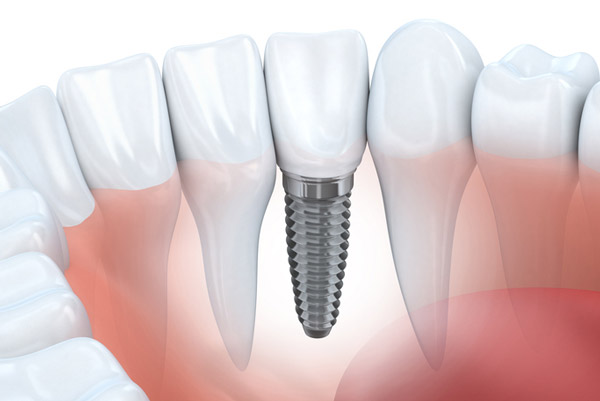Dallas Center for Oral & Maxillofacial Surgery
Dental Implants FAQ
Frequently asked questions (FAQs) about dental implants. Our surgeons are the top experts in dental implants in the Dallas and Plano area, and one of their top priorities is making sure patients have the knowledge and understanding they need when considering an oral surgery procedure like dental implants.

Here at Dallas Center for Oral & Maxillofacial Surgery, we conduct dental implants placement procedures on patients who have lost their teeth.
Dental implants are the best solution for people who have lost their teeth. Many people do not understand much about the surgical procedure or are wary of it because of the misconceptions that flow around. Below, we debunk some of these myths and misconceptions by answering some of the frequently asked questions about dental implants.
-
A bone grafting procedure is only carried out when our dentists establish that you do not have enough jawbone to support the implant. If you stay for long with an empty tooth gap, you are likely to lose some volume of the jawbone. If you opt to get dental implants immediately after losing your teeth, there will be no need for a bone grafting procedure.
A sinus lift is another pre-dental implant procedure that might be necessary for some situations. A sinus lift is only necessary when the implants are being placed on the upper jaw and too close to the sinus cavity. The implants must not touch the sinus cavity, and hence the need to lift it a little bit. -
Before putting any specific value on the time it takes to heal from a dental implants placement procedure, it is important to mention that different people heal differently. It might take longer for you than for the next person. Generally, it takes three months for a dental implant placed on the lower jaw to completely heal. It might take up to six months for a dental implant placed on the upper jaw. The whole process from pre-placement procedures to complete recovery might take as long as one year, depending on the complexity of the procedures that have to be carried out.
-
The procedure might involve pulling out your damaged tooth, a bone graft procedure, and screwing metal posts into your jawbone. All these are surgical procedures that require our surgeons to put you under sedation or some type of numbing agent. During the procedures, you’ll feel no pain, and you’ll be quite comfortable. For a bone grafting procedure, you’ll be put under general anesthesia. That means you’ll be completely unconscious.
After the procedures, you might feel a bit of discomfort or a sting when the sedation and numbness starts wearing off. It should be manageable with over-the-counter pain relievers. Our surgeons may also give you or prescribe medication to help you manage any discomfort that might arise. We will work with you to manage any discomfort that arises out of the procedures. -
Dental implant placement is one of the best tooth replacement options available. With a minimal maintenance requirement, dental implants are considered easier to handle than dentures or crowns. Dental implant technology has undergone significant advancement over the past decade or two to the point where implant failure due to functionality problems or rejection is extremely rare. But, this doesn’t mean that implants don’t fail at all.
Please feel free to call Dallas Center for Oral & Maxillofacial Surgery at 972-733-0414 and ask any other questions about dental implants that you might have. Dental implants are indeed one of the best solutions for anyone who has lost their teeth, and the misconceptions out there should not make you shy off from getting them.

Patient Feedback
Read More Feedback >
We are here to help you achieve a healthier, more beautiful smile!
